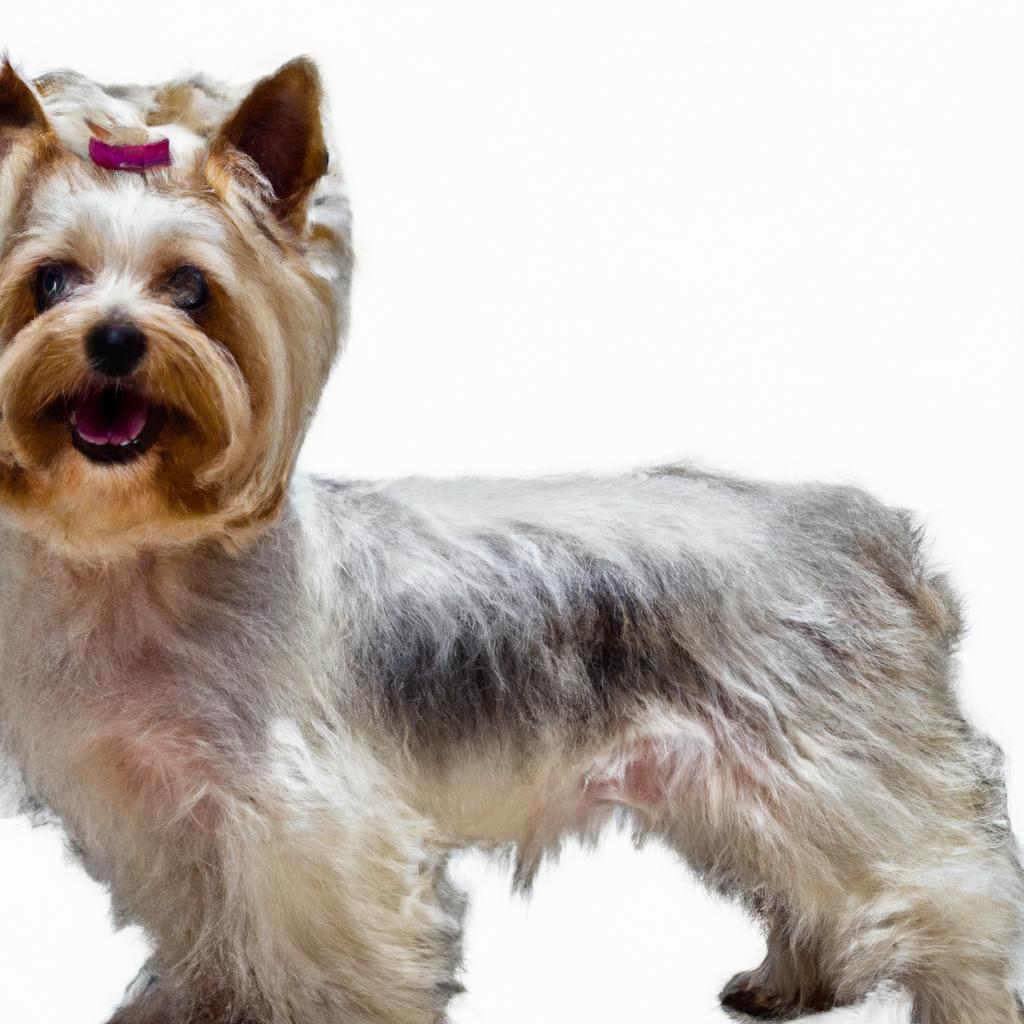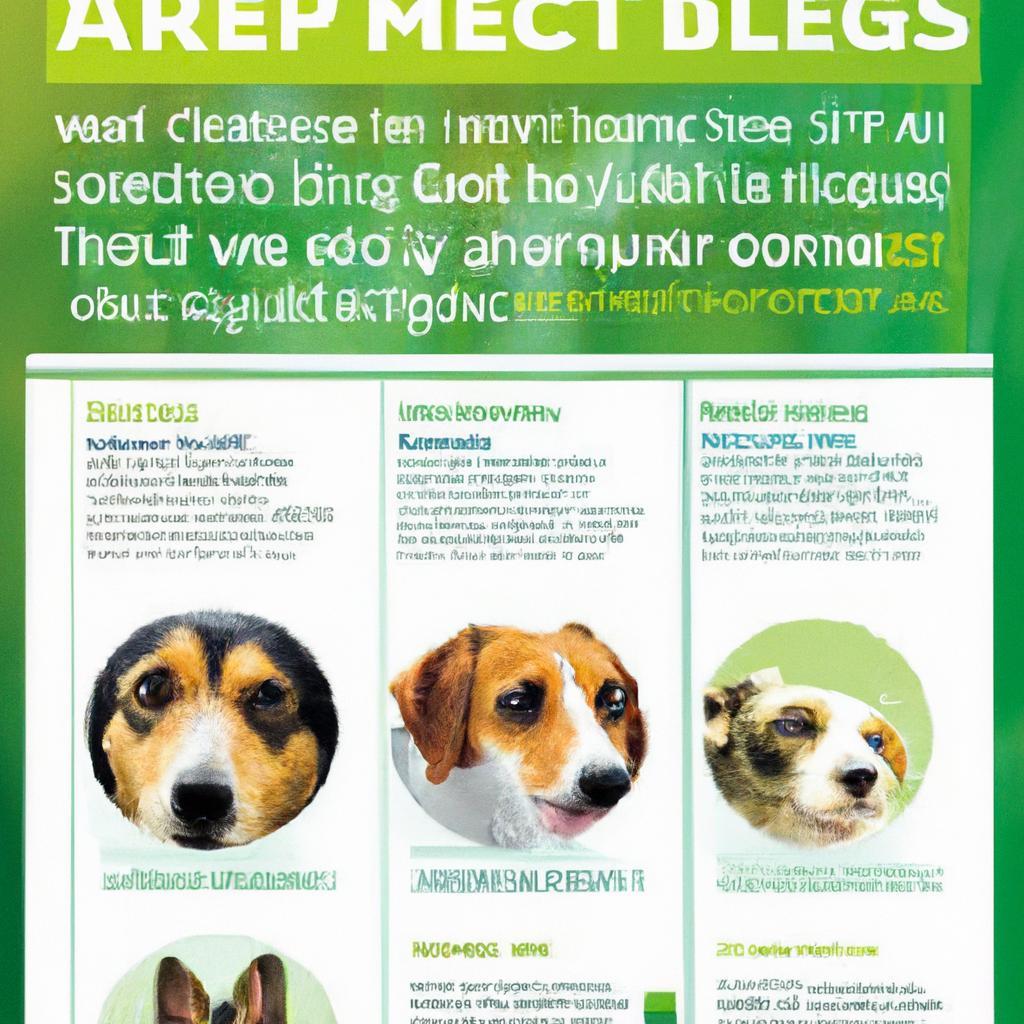Meet Sarah, a devoted dog lover who longed for a furry companion but struggled with allergies. After countless sleepless nights and sneezing fits, she discovered the world of hypoallergenic dogs. Among them, the Poodle stood out, renowned for its low-shedding coat and minimal dander. With a Poodle by her side, Sarah found joy without the allergy woes. If you’re seeking a loyal friend that won’t trigger your allergies, consider the Poodle—your perfect match awaits! Embrace the love of a dog without the sneezes.
Contents
- Understanding Hypoallergenic Dogs and Their Unique Traits
- Top Hypoallergenic Breeds for Allergy Sufferers
- Caring for Hypoallergenic Dogs: Best Practices for a Healthy Home
- Making the Right Choice: Factors to Consider When Selecting a Hypoallergenic Dog
- Q&A
Understanding Hypoallergenic Dogs and Their Unique Traits
When considering a dog that is less likely to trigger allergies, it’s essential to understand what “hypoallergenic” truly means. While no dog is entirely free of allergens, certain breeds are known to produce fewer allergens than others. These dogs often have hair instead of fur, which can help reduce the amount of dander and saliva that becomes airborne. This unique trait makes them a popular choice for allergy sufferers seeking companionship without the discomfort of allergic reactions.
Hypoallergenic breeds typically exhibit specific characteristics that set them apart. For instance, many of these dogs have a **curly or wavy coat** that traps dander and hair, preventing it from spreading throughout the home. Additionally, they often require regular grooming, which not only keeps their coats healthy but also helps minimize the allergens they shed. Some of the most recognized hypoallergenic breeds include:
- Poodle – Available in standard, miniature, and toy sizes, Poodles are intelligent and versatile.
- Bichon Frise – Known for their cheerful disposition and soft, curly coats.
- Portuguese Water Dog – Energetic and friendly, they are great for active families.
- Shih Tzu – With their long, flowing coats, they are both adorable and affectionate.
Another important factor to consider is the dog’s temperament and energy level. Many hypoallergenic breeds are known for their friendly and sociable nature, making them excellent companions for families and individuals alike. They often thrive on interaction and can adapt well to various living situations, whether in a bustling household or a quieter environment. This adaptability, combined with their lower allergenic potential, makes them a desirable choice for many dog lovers.
Ultimately, choosing a hypoallergenic dog involves more than just considering allergies; it’s about finding a breed that fits your lifestyle and personality. Engaging with these dogs can provide immense joy and companionship while minimizing allergy concerns. By understanding their unique traits and characteristics, you can make an informed decision that ensures a harmonious relationship with your new furry friend.
Top Hypoallergenic Breeds for Allergy Sufferers
For those who suffer from allergies, finding a furry companion can often feel like an impossible task. However, certain dog breeds are known for producing fewer allergens, making them more suitable for allergy sufferers. These breeds typically have hair instead of fur, which reduces the amount of dander and saliva that can trigger allergic reactions. If you’re looking for a loyal friend that won’t leave you sneezing, consider the following hypoallergenic breeds:
- Poodle: Available in standard, miniature, and toy sizes, Poodles are not only intelligent and trainable but also have a curly coat that traps dander and hair, preventing it from spreading in your home.
- Bichon Frise: With their soft, curly coats, Bichon Frises are playful and affectionate. Their low-shedding fur means less dander in the air, making them a popular choice for those with allergies.
- Portuguese Water Dog: Known for their energetic nature and love for water, these dogs have a dense, curly coat that is similar to a Poodle’s, which helps minimize allergens.
- Shih Tzu: With their long, flowing coats, Shih Tzus may seem like a surprising choice, but their hair is more akin to human hair, which means less shedding and dander.
In addition to their hypoallergenic qualities, these breeds often possess charming personalities that can enrich your life. Poodles are known for their intelligence and versatility, excelling in various dog sports and activities. Bichon Frises are cheerful companions, bringing joy and laughter with their playful antics. Portuguese Water Dogs are not only great swimmers but also loyal and protective, making them excellent family pets. Shih Tzus, with their affectionate nature, thrive on companionship and are perfect for those seeking a cuddly friend.
When considering a hypoallergenic dog, it’s essential to remember that no breed is entirely free of allergens. Regular grooming, cleaning, and maintaining a pet-friendly environment can significantly reduce allergy symptoms. Investing in air purifiers and vacuum cleaners with HEPA filters can also help keep your home allergen-free. By choosing one of these breeds and taking the necessary precautions, you can enjoy the companionship of a dog without compromising your health.
Ultimately, the best hypoallergenic breed for you will depend on your lifestyle and preferences. Whether you prefer the playful nature of a Bichon Frise or the intelligence of a Poodle, there’s a perfect match out there waiting for you. By selecting a breed that aligns with your needs and committing to proper care, you can create a harmonious home where both you and your new furry friend can thrive together.
Caring for Hypoallergenic Dogs: Best Practices for a Healthy Home
When it comes to creating a healthy environment for hypoallergenic dogs, there are several best practices to consider. First and foremost, **regular grooming** is essential. Frequent brushing helps to minimize loose hair and dander, which can trigger allergies. Opt for a grooming schedule that suits your dog’s coat type, and consider using tools specifically designed for hypoallergenic breeds. Additionally, bathing your dog every few weeks can further reduce allergens, keeping their skin and coat clean and healthy.
Another important aspect of maintaining a healthy home for hypoallergenic dogs is **cleaning and maintenance**. Invest in high-quality air purifiers to filter out allergens and improve indoor air quality. Regular vacuuming with a HEPA filter vacuum cleaner can effectively remove pet hair and dander from carpets and upholstery. Don’t forget to wash your dog’s bedding and toys frequently to eliminate any accumulated allergens, ensuring a comfortable space for your furry friend.
Diet also plays a crucial role in the overall health of hypoallergenic dogs. Providing a **balanced and nutritious diet** can help strengthen their immune system, potentially reducing allergic reactions. Consult with your veterinarian to determine the best food options that cater to your dog’s specific needs. Incorporating supplements, such as omega fatty acids, can promote healthy skin and coat, further minimizing dander production.
Lastly, consider the **environmental factors** that may contribute to allergies. Limiting exposure to common allergens, such as dust mites and pollen, can significantly benefit your dog’s health. Regularly wash curtains, and keep windows closed during high pollen seasons. Creating a designated pet-free zone in your home, such as the bedroom, can also provide a safe haven for allergy sufferers while ensuring your hypoallergenic dog remains comfortable and happy.
Making the Right Choice: Factors to Consider When Selecting a Hypoallergenic Dog
When it comes to choosing a hypoallergenic dog, several key factors should guide your decision-making process. First and foremost, consider the breed’s coat type. Dogs with hair instead of fur tend to produce fewer allergens, making breeds like Poodles and Bichon Frises popular choices. Additionally, look for breeds that have minimal shedding, as this can significantly reduce the amount of dander and saliva that becomes airborne in your home.
Another important factor is the dog’s size and energy level. Smaller breeds may be easier to manage in terms of space and exercise requirements, especially for individuals or families living in apartments. However, larger hypoallergenic breeds, such as the Standard Schnauzer, can also be a great fit for active households. Assess your lifestyle and choose a dog that aligns with your daily routine and living environment.
Health considerations should also play a crucial role in your selection process. Some hypoallergenic breeds are prone to specific health issues, so it’s essential to research the breed’s common ailments. Opting for a dog from a reputable breeder who conducts health screenings can help ensure that you are bringing home a healthy companion. Additionally, consider adopting from shelters or rescue organizations that specialize in hypoallergenic breeds, as this can provide a loving home to a dog in need.
Lastly, take into account your own allergies and sensitivities. Spend time with potential breeds to gauge your reaction before making a commitment. Each individual may react differently to various breeds, so personal experience is invaluable. By carefully evaluating these factors, you can make an informed decision that leads to a harmonious relationship with your new furry friend, while minimizing allergy-related concerns.
Q&A
-
What does hypoallergenic mean in relation to dogs?
Hypoallergenic dogs are breeds that are less likely to trigger allergic reactions in sensitive individuals. This is typically due to lower levels of shedding and dander production, making them a suitable choice for allergy sufferers.
-
Which dog breeds are considered the most hypoallergenic?
Some of the most hypoallergenic dog breeds include:
- Poodle
- Bichon Frise
- Portuguese Water Dog
- Shih Tzu
- Yorkshire Terrier
These breeds are known for their low-shedding coats and minimal dander, making them ideal for allergy sufferers.
-
Can any dog be completely hypoallergenic?
No dog is completely hypoallergenic. While certain breeds are less likely to cause allergic reactions, individual responses can vary. Regular grooming and cleaning can help minimize allergens in your home.
-
What should I consider before getting a hypoallergenic dog?
Before bringing a hypoallergenic dog into your home, consider:
- Your specific allergies and sensitivities
- The dog’s grooming needs
- The dog’s temperament and energy level
- Your lifestyle and living situation
Choosing the right breed and understanding your own needs will ensure a happy and healthy relationship with your new pet.
while no dog is completely hypoallergenic, breeds like the Poodle and Bichon Frise significantly reduce allergy triggers. Choosing the right dog can enhance your life without compromising your health. Invest in a furry companion that suits your needs!

大家好,我是彼得潘,專業的手法身體治療師。我喜歡探索和研究各種主題,並透過與人工智慧的合作分享專業、實用、有趣的文章。我們定期進行人工審核,以確保內容的準確性。如果您發現文章中有任何不準確的地方,請隨時與我們聯繫,我們會及時糾正。您可以透過 [email protected] 與我們聯繫。



